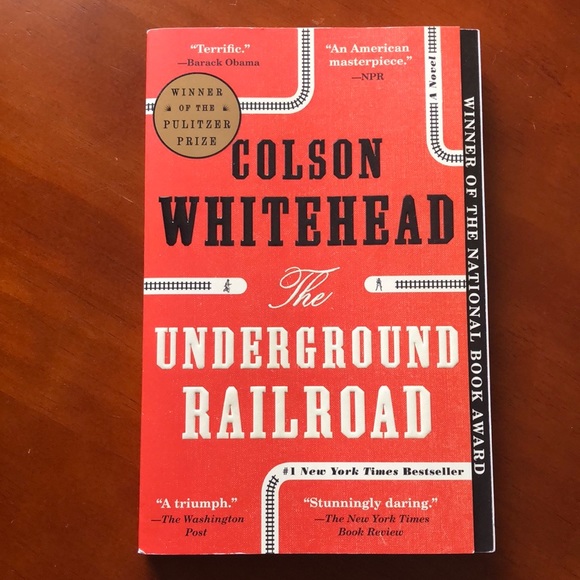Colson Whitehead’s The Underground Railroad is a masterful blend of historical fiction and speculative imagination that offers a haunting and evocative portrayal of slavery in America. The novel, which won both the Pulitzer Prize and the National Book Award, reimagines the historical Underground Railroad as an actual subterranean train network, providing a powerful and surreal metaphor for the journey of escape and the elusive quest for freedom.
The story centers on Cora, a young woman born into slavery on a Georgia plantation. Cora’s life is defined by brutality, degradation, and the constant threat of violence. Her mother, Mabel, is the only slave to have successfully escaped the plantation, but her absence leaves Cora feeling abandoned and embittered. When Caesar, a fellow slave, approaches her with a plan to escape, Cora is initially hesitant but ultimately agrees, setting off a chain of events that will forever change her life.
Whitehead’s depiction of the Underground Railroad as an actual railroad system running beneath the ground is a stroke of genius, transforming a historical escape route into a complex symbol of the struggle for freedom. Each station Cora visits on her journey represents a different aspect of the black experience in America, from the relative safety of South Carolina to the terrifying dystopia of North Carolina, where the state is systematically eradicating its black population.
The novel’s structure allows Whitehead to explore the different ways in which racism manifests across the country. Through Cora’s journey, readers witness the various forms of oppression and violence that black people have endured, from the overt brutality of slavery to the more insidious, institutionalized racism of the so-called “free” states. Whitehead skillfully intertwines historical facts with speculative elements, creating a narrative that is both rooted in history and eerily relevant to contemporary issues.
Cora’s character is complex and richly developed. She is a survivor, shaped by the horrors she has witnessed and experienced, yet she remains resilient and determined. Her journey is not just a physical escape from bondage but also a psychological and emotional odyssey as she grapples with her sense of identity, her fears, and the haunting legacy of her mother’s abandonment.
Whitehead’s prose is both lyrical and unflinching, capturing the stark realities of slavery while also allowing for moments of beauty and humanity. His writing is filled with vivid imagery and haunting scenes that linger long after the book is closed. The novel’s pacing is relentless, keeping readers on edge as Cora moves from one perilous situation to the next, never knowing who can be trusted or what dangers lie ahead.
The Underground Railroad is more than just a historical novel; it is a profound commentary on the enduring legacy of slavery and racism in America. Whitehead challenges readers to confront the uncomfortable truths of this history, while also celebrating the strength and resilience of those who fought against it. This novel is a must-read for anyone interested in exploring the complexities of America’s past and its ongoing struggles with race and equality.








